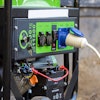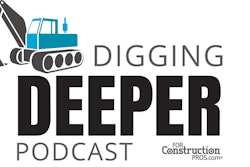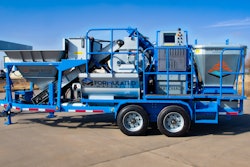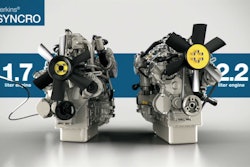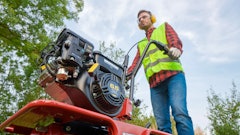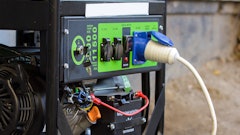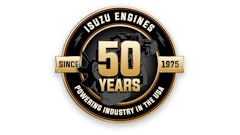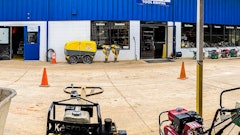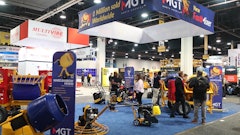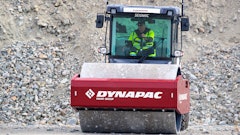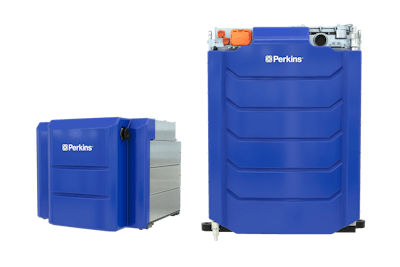
Perkins will showcase customized, sustainable power solutions for original equipment manufacturers (OEMs) and their customers in the construction sector. The company plans to highlight these solutions at bauma 2022. Perkins is engaging in a battery program as part of its ongoing initiative to help the company’s customer base of more than 800 OEMs.
“As the industry enters the energy transition away from carbon, our range of innovations shows how we’re helping customers improve jobsite performance, provide reliable electric power, and achieve business outcomes—all while improving efficiency and powering human progress,” said Jaz Gill, Perkins vice president of global sales, marketing, service and parts. “From biodiesel and lower-carbon intensity fuels to battery power and hydrogen blends and beyond, our decade-long exploration into alternative fuels and highly collaborative approach have kept us moving steadily to more sustainable outcomes for our customers.”
Perkins engineers are currently developing and field testing 48-volt, 300-volt and 600-volt battery configurations that can be leveraged by OEMs in the construction, industrial, materials handling and agricultural industries.
The lithium-ion batteries are a modular design and feature factory-installed telematics to optimize performance and packaging in off-highway applications. They are also being designed for recycling and reuse at the end of life to incorporate sustainability across their entire life cycle.
Sustainable Solutions
With field proven technology, Perkins is able to offer integration expertise to OEMs through the company's Customer Machine Engineering Team. This team steers projects from concepts to prototypes to functional, fully tested machines by evaluating system requirements; optimizing system architectures; managing system controls development, calibration and verification; and performing final system validation.
Perkins continues to invest in new engine technologies, including dual label certification for EU Stage V and U.S. EPA Tier 4 Final. By optimizing the entire engine system from the air intake to the end of the exhaust pipe, Perkins has developed a full range of engines from 0.5 to 18 liters and 8.2 to 597 kW (11-800 HP) with an integrated suite of advanced technologies that not only reduce GHG emissions, but also deliver improvements in power density, performance and operation.
The emissions of carbon dioxide and other greenhouse gases associated with these engines can be reduced by up to 85 percent1 through the use of renewable, lower-carbon intensity fuels derived from sources including planted crops (soy, palm, rapeseed, etc.), used cooking oil, animal fat, biomass, algae and others. Every industrial Perkins engine from the 400 Series through the 2800 Series can use low carbon-intensity fuels that meet the leading industry diesel fuel specifications2.
Additionally, Perkins offers a portfolio of connectivity solutions that can help OEMs promote the optimal, sustainable performance of diesel engines. Available as a standalone service from Perkins or easily integrated with OEM fleet management offerings, connected engine capabilities deliver insights through a customizable dashboard of performance, fuel and oil consumption, and other engine data points.
These connectivity offerings are integrated with expert maintenance and service capabilities from the Perkins global distributor network to prompt the proactive diagnosis and resolution of engine issues.
For example, the free Perkins My Engine App reduces paperwork by providing service reminders, electronic service logs, service publications, quick links to distributors and simplified sharing of engine data for customers, which supports rental companies.
Service and Genuine Parts
The global network of 90 Perkins distributors can help OEMs enhance the sustainability of their equipment through numerous aftermarket capabilities. With solutions designed around customer business needs, Perkins offers a suite of options to support various stages in an engine’s life.
Additionally, Perkins distributors offer repowers and replacement engines that extend the life of machines, as well as remanufactured engine components through the Perkins Power Exchange scheme. Sustainability can also be improved during basic maintenance with Perkins Ecoplus fuel filters, which feature an element-based design that eliminates the metal housing and center tube, requiring fewer materials, minimizing waste and enabling recycling after use.
1 GHG Protocols (www.ghgprotocol.org) currently does not have an established method to determine lifecycle CO2 reductions from the use of biogenic fuels.
2 Fuels must meet the specifications and characteristics described on www.perkins.com in order to be used in Perkins engines and reduce the risk of downtime.



